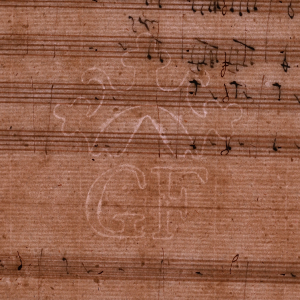- Function
-
- Composer
- Biography
Giuseppe Toti/Totti (d. 1833) was a castrato singer, organist and composer, principally of sacred music. In the librettos for two farces presented at the Teatro Pace in Rome in 1777 he is named ‘Giuseppe Toti di Foiano’, which implies he came from one of the Italian towns called Foiano. He was admitted as a soprano to the Capela Real da Ajuda (Royal Chapel at Ajuda) in November 1779. William Beckford remarked that on the occasion of a performance of a mass by Jerónimo Francisco de Lima, at the new church of S. Pedro de Alcantara in October 1787, ‘Toti sang delightfully, [because] he happened to be in voice, a blessing he seldom enjoys’. This implies that, for some reason, his voice became unreliable relatively early in his career. In 1790, Toti made a copy of the ‘Lezioni .. sotto la scuola del Sig.r Gio.ni de Souza Carvalho’ (P-Ln, M.M. 4826), which suggests he received instruction in composition from the composer João de Sousa Carvalho around this time, whom he eventually succeeded as music master of the royal children.
Toti is one of the few musicians of his epoch known with certainty to have acted as Mestre de Capela of the Capela Real (Chapel Master of the Portuguese royal chapel), a post he held from February 1800, in conjunction with the position of music master. It obliged him to compose music for the chapel and direct (‘bater o compasso’) on ceremonial occasions as required by the Principe Regente, D. João VI. Santos (1967/1968, pp. xxxix and lii) claimed that Toti joined the Portuguese royal court in Rio de Janeiro in September 1809. However, there are clear indications that he never undertook the journey. Santos’s source is a list of musicians who received an order to join the court, but his name disappears from subsequent lists of royal musicians who went to Brazil (Marques 2012, p. 40, n89). Furthermore, there is no record of his presence there, where his function as music master was taken by Marcos Portugal (Marques 2012, pp. 48–49). Vieira (1900) estimated that he died, advanced in age, in 1832 or 1833; he was still composing towards the end of his life, to judge from an autograph Stabat Mater (P-Ln, F.C.R. 216//72) dated February 1830. He is named among a list of individuals, dated 7 March 1833, who had donated money or textiles to the army (Gazeta de Lisboa, no. 58, 8 March 1833).
The Fundo do Conde de Redondo in P-Ln contains an exceptionally large number of Toti autographs that span the 40-year length of his compositional career. Toti’s handwriting seems to have changed remarkably little in that time, which suggests that it had already reached full maturity by 1790, though changes in his signature occurred around 1792: from ‘Giuseppe Toti’ (1791 and earlier), to ‘O[rigina]le. di GToti’ (1792) and then to ‘Giuseppe TotiGT’ (predominant from December 1792 onwards). Totti habitually wrote ‘P.mo foglio’ and similar inscriptions on the first pages of his autographs (the reason is unclear). His manuscripts also feature unusual rastrology; sometimes, two rastra seem to have been used simultaneously to rule each half of a sheet. This may be because he purchased his own paper for copying music and had assistants rule it with stave-lines (other composers in Portugal are known to have been supplied with ready-ruled music paper). Most of the autographs in the Fundo do Conde de Redondo are fair copies presumably copied from earlier manuscripts, though in some cases they contain compositional alterations, presumably made around the time that the works were first performed or revived. Totti spelt his surname with two ‘ts’ and not three. Much elementary work on his music and its sources remains to be done to this day.
Riccardo Castagnetti, ‘Andrea Basili (1705-1777). La didattica della composizione nel secolo XVIII fra teoria e pratica’, PhD thesis (Università di Bologna, 2017).
Cristina Fernandes, ‘O sistema produtivo da Música Sacra em Portugal no final do Antigo Regime: a Capela Real e a Patriarcal entre 1750 e 1807’, PhD thesis (Universidade de Évora, 2009).
Cristina Fernandes and Alberto Pacheco, ‘Giuseppe di Foiano Totti’, Dicionário Biográfico do Núcleo Caravelas do CESEM/NOVA FCSH (2010), [https://dicionario-biografico.caravelas.fcsh.unl.pt/node/56].
Giuliana Gialdroni and Teresa Gialdroni, Libretti per musica del fondo Ferrajoli della Biblioteca Apostolica Vaticana (Lucca: Libreria Musicale Italiana, 1993).
António Jorge Marques, A obra religiosa de Marcos António Portugal (1762-1830): catálogo temático, crítica de fontes e de texto, proposta de cronologia (Lisbon: Biblioteca Nacional de Portugal, 2012).
Mariana Amélia Machado Santos, Biblioteca da Ajuda. Catálogo de música manuscrita, vol. 9 (Lisbon: Biblioteca da Ajuda, Ministério da Educação Nacional, 1967/1968).
Ernesto Vieira, Diccionario biographico de musicos portuguezes: historia e bibliographia da musica em Portugal, 2 vols. (Lisbon: Typographia Mattos Moreira & Pinheiro, 1900), ii, 378-381.
- Source(s)
-
- P-Ln_FCR_216_01
- P-Ln_FCR_216_02
- P-Ln_FCR_216_03
- P-Ln_FCR_216_04
- P-Ln_FCR_216_05
- P-Ln_FCR_216_07
- P-Ln_FCR_216_08
- P-Ln_FCR_216_09
- P-Ln_FCR_216_10
- P-Ln_FCR_216_11
- P-Ln_FCR_216_12
- P-Ln_FCR_216_13
- P-Ln_FCR_216_14
- P-Ln_FCR_216_15
- P-Ln_FCR_216_16
- P-Ln_FCR_216_17
- P-Ln_FCR_216_18
- P-Ln_FCR_216_19
- P-Ln_FCR_216_20
- P-Ln_FCR_216_21
- P-Ln_FCR_216_22
- P-Ln_FCR_216_23
- P-Ln_FCR_216_24
- P-Ln_FCR_216_25
- P-Ln_FCR_216_27
- P-Ln_FCR_216_28
- P-Ln_FCR_216_30
- P-Ln_FCR_216_31
- P-Ln_FCR_216_32
- P-Ln_FCR_216_33
- P-Ln_FCR_216_34
- P-Ln_FCR_216_35
- P-Ln_FCR_216_37
- P-Ln_FCR_216_38
- P-Ln_FCR_216_39
- P-Ln_FCR_216_40
- P-Ln_FCR_216_41
- P-Ln_FCR_216_42
- P-Ln_FCR_216_44
- P-Ln_FCR_216_45
- P-Ln_FCR_216_46
- P-Ln_FCR_216_47
- P-Ln_FCR_216_48
- P-Ln_FCR_216_49
- P-Ln_FCR_216_50
- P-Ln_FCR_216_51
- P-Ln_FCR_216_52
- P-Ln_FCR_216_53
- P-Ln_FCR_216_54
- P-Ln_FCR_216_55
- P-Ln_FCR_216_56
- P-Ln_FCR_216_57
- P-Ln_FCR_216_58
- P-Ln_FCR_216_59
- P-Ln_FCR_216_60
- P-Ln_FCR_216_61
- P-Ln_FCR_216_62
- P-Ln_FCR_216_63
- P-Ln_FCR_216_64
- P-Ln_FCR_216_65
- P-Ln_FCR_216_66
- P-Ln_FCR_216_67
- P-Ln_FCR_216_68
- P-Ln_FCR_216_69
- P-Ln_FCR_216_70
- P-Ln_FCR_216_71
- P-Ln_FCR_216_72
- P-Ln_FCR_216_73
- P-Ln_FCR_216_74
- Handwriting identifiers
-
- C-Clef
-
- Type 1
- F-Clef
-
- Type 2
- G-Clef
-
- Type 1
- Type 2
- Watermark ID
- Paper type ID
- Images
-
-







































































